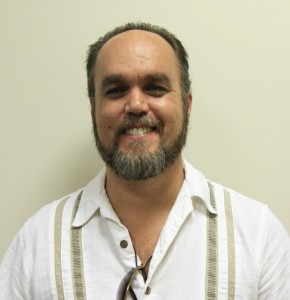 There is that moment after a conflict, maybe it’s an argument or some harsh words, when we want to reconnect with the other person, but we don’t know exactly how. We are embarrassed sometimes, or maybe afraid to be rejected or hurt again. Maybe we are in pain or ashamed, but we want to repair the relationship. We desire to move forward. This impulse is at the heart of restorative justice, and it occurs in conflicts large and small.
There is that moment after a conflict, maybe it’s an argument or some harsh words, when we want to reconnect with the other person, but we don’t know exactly how. We are embarrassed sometimes, or maybe afraid to be rejected or hurt again. Maybe we are in pain or ashamed, but we want to repair the relationship. We desire to move forward. This impulse is at the heart of restorative justice, and it occurs in conflicts large and small.
Sometimes change happens in little ways. This afternoon I found myself observing a Community Conference at a local New Orleans school. Community Conferencing (CC) is a restorative process that brings together not only the main parties of a conflict, but also others who are affected. Like a lot of restorative models it relies on authentic dialogue as a way to connect people and begin making things better.
CC seeks to answer three questions:
- What happened?
- How were people affected by what happened?
- What can be done to repair the harm and keep it from happening again?
For the confidentiality of all involved, I will not give the details of the conference or say what school it occurred at. It was conducted by a facilitator from the Center for Restorative Approaches here in New Orleans. Their program is modeled on the Community Conferencing Center (CCC) in Baltimore, Maryland. CCC maintains a relationship with the Center for Restorative Approaches, offering support in maintaining and developing skills and in the nuts and bolts of establishing connections with sources of referral.
In this conference, two fourth graders, along with staff and family members, were able to discuss an incident, come to some understanding about what had happened and why, and figure out ways to not only make up for the damage done, but also to keep similar incidents from happening in the future. They discussed different ideas, with everyone having input into what solutions were adopted. Most of the ideas came from the kids themselves. At the end an agreement was reached, copies were made for everyone, and cookies were eaten in celebration.
These conferences are happening all over the New Orleans, as well as in Baltimore, other towns in Maryland and parts of New York City. In some places they are conducted in lieu of criminal proceedings. If the two kids involved in the conference I attended had been unable to reach an agreement, they would probably have been suspended for a few days.
No one wins when that happens, and teachers and other staff members know it. Community conferences and similar processes are slowly changing the ways schools deal with disciplinary problems. In the process, they are teaching kids how to better handle the inevitable conflicts that come along in life. More time in school means less chance of getting into trouble later, and the skills kids pick up will serve them, and everyone else, throughout their lives.
